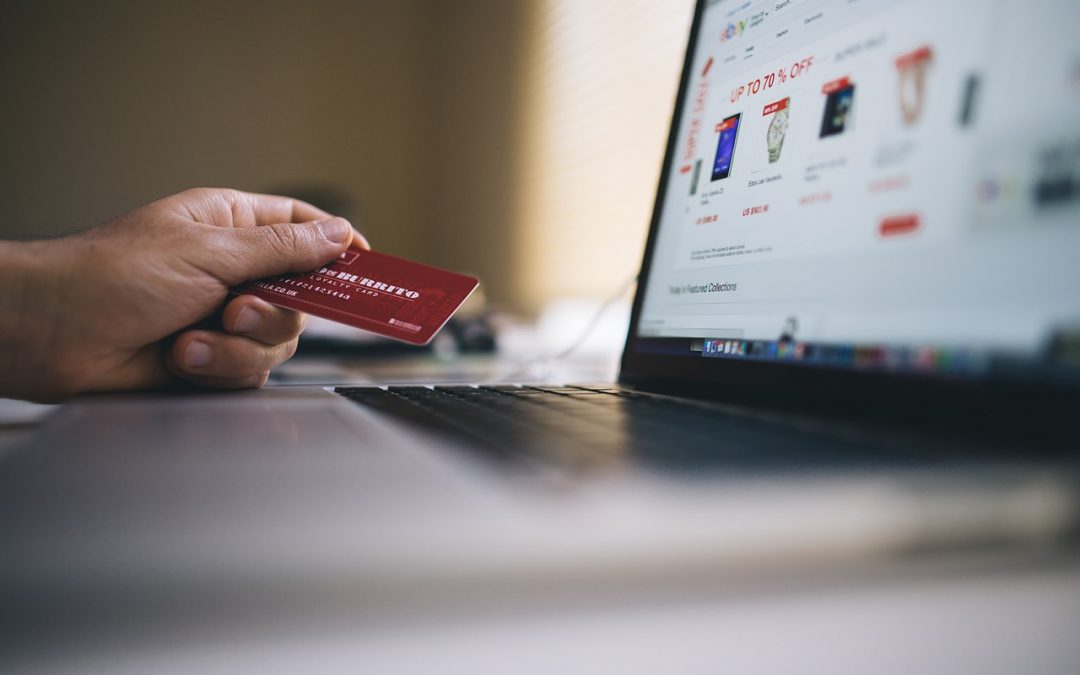I just bought six square pieces of spongy fabric for $20 and walked away happy – “victim” of an impulse purchase.
I was at one of those big show events and walked past a demonstration booth. I even knew it was coming. About 50% of the people walking out were carrying two bright yellow cylinder-things.
As we walked toward the convention center, I told Tim (my other half), “There’s one of those guys with a microphone in there, doing a demonstration. He gets people so excited they think they have to buy those things. They over-pay then never use them.” I said this a bit smugly. I know of such things, so I wouldn’t succumb.
Yeah, right. This guy was good. So good, I came away with five ideas for increasing sales from impulse purchases. Next time you evaluate short-term sales and marketing strategies, think about and apply these five impulse purchase lessons…
Impulse Purchase Lesson 1: Demonstrate an impressive, relevant feature.
If the product is chocolate, sold at a retail checkout stand, you have no need for this one. Human nature takes over. When you are selling unrecognizable cylinder things, people need some encouragement.
You would never know it to look at them, but these things were super absorbent shammies. They can suck 8 – 10 ounces of soda out of your carpet in nothing flat AND it makes for an impressive demonstration. When the demonstrator mentioned they could dry a sweater in three hours, I was hooked. Never mind we have about two spills a year in my house and I don’t own any “lay flat to dry” sweaters.
This ability to get people to “live in the moment” is one key to a successful impulse purchase demonstration. The salesperson has a lot to do with it, of course. Repetition of an incredible, attractive feature, however, is key as well.
Think of any infomercial or “Billy Mays” product. There is always an “AMAZING!” feature – cooks in minutes, instantly removes stains, easily pulls dings from your car, etc.
2: Try to “time it right”.
Quite coincidentally, one of those semiannual spills in my house happened the day before I bumped into the yellow cylinder guy. I was thinking “If I’d had these yesterday, right now we wouldn’t have books stacked in the middle of the living room floor.” Quite by accident, he had related to something that was top-of-mind for me.
Fortunately, you do not have to rely on coincidence. At any one time, there are usually six or eight generally popular “themes” you could tie into. Better yet, your target audience is likely to have it’s own unique interests.
On the Internet, you can “time it right” by associating complementary products or services. If someone is researching monitors, for example, perhaps they need an ink cartridge for their printer.
Showing or highlighting ink cartridges on the screen along with the monitors may incite an impulse purchase. Better yet – and this is impossible unless you have order histories or detailed profiles – show them the exact cartridge they need.
3: Make it easy.
It turns out the cylinder things costs a flat $20. There was no change to mess with, no stopping to fill in order forms, and no multiple pieces of currency. As people pulled $20’s out of their pockets, the demonstrator took them and handed over the shammies in a single motion.
On the Internet, you can make it easy in two ways – ordering and delivery.
Make the order process as simple as possible. Amazon’s “Quick-Click” links are a good example of making ordering easy. Impulse purchasers simply click on the “Buy from Amazon” button and order straight off a pop-up window. You can see how it works here, in the left column under “Amazon ‘Quick-Click’ Example”: http://WebSiteMarketingPlan.com/Arts/ImpulsePurchase.htm
Easy delivery is another way to encourage impulse purchases on the Internet. Immediately downloadable digital items are an example. For physical items, quick delivery – overnight, same day, or local store pick-up – can increase sales.
4: Give an enticingly presented discount.
A roll of three shammies was $21 something, but the guy was taking care of the sales tax, which made it an even $20 (But wait, there’s more!). Because it was early he would throw in another 3-roll for no additional charge. Caught up in the moment, we nodded agreement. We were getting a deal – no sales tax plus three free.
The way a discount is presented can make a deal sound either appealing or “not such a deal”. Which sounds better?…
- “Buy One, Get One Half Off.” OR “Buy Two and Get a 25% Discount.”
- “3 for $5.00” OR “$1.67 each.”
- “40% Off Sale” OR “On Sale, $12.00 each.” (Assuming $20 item.)
Another way to encourage impulse purchases is to give a discount by bundling. Offer to reduce the price on a second, related item (Like in example #1, above.).
Online, I have seen this done with books. Some booksellers offer you a chance to save money on shipping and/or book price if you also purchase a related item.
5: “Keeping up with the Joneses.”
Instead of putting the shammies in a bag, the demonstrator rolled them up into a cylinder. This way, people at the show would see others carrying them around and wonder what they were missing.
The same concept can be applied to the Internet. I have seen messages like: “Others who bought ‘x’ also bought ‘y'” on order forms, at check out, and on product screens.
So there they are – five tactics the yellow cylinder guy used to convince me (and nearly everyone around me) to happily walk away with six shammies. By correctly applying these same techniques you can see your sales soar as well.

Recent Comments